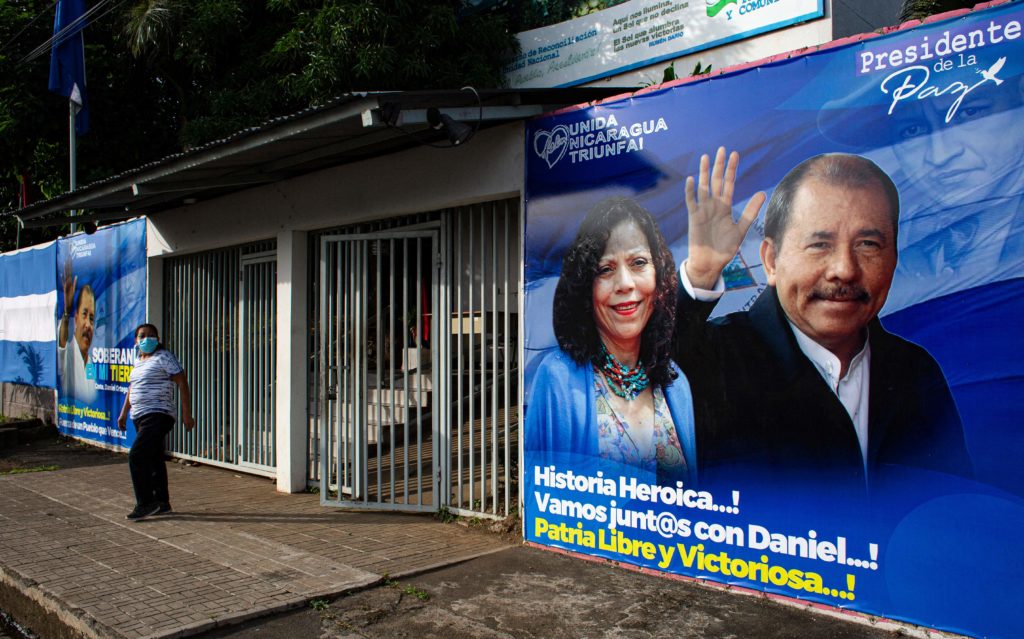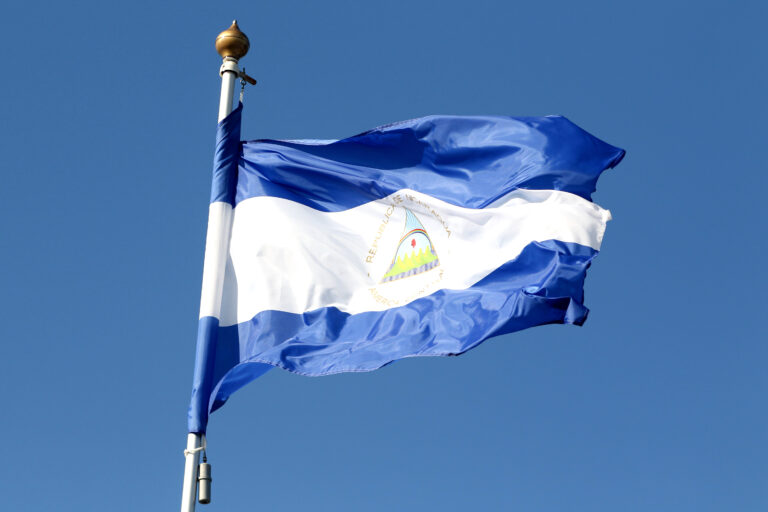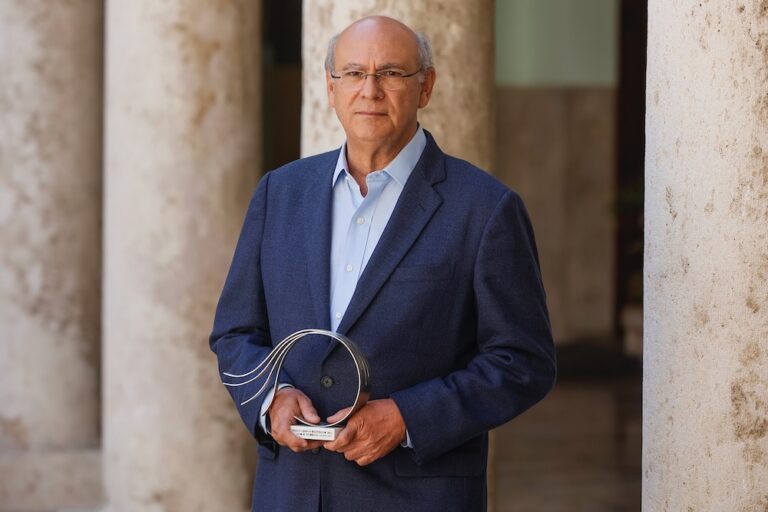We reiterate our solidarity and support for Nicaraguan media outlets and journalists, including those in exile, as they continue to carry out their work of providing information to the country’s citizens, and call on the Nicaraguan authorities to provide guarantees for press freedom.
We, the organisations signatory to this statement, express our concern over recent events in Nicaragua that limit the free functioning of the press and contribute to the worsening situation of freedom of expression violations, including refusals to allow information providers to properly cover the electoral and voting processes for the national election scheduled to take place on 7 November. These events are taking place in a context that involves an absence of the minimal conditions for free, fair and transparent elections.
We are alarmed over the 25 October expulsion by immigration authorities at the El Guasaule border post of a journalistic team from the Honduran El Heraldo newspaper. A similar incident took place in June involving New York Times journalist Anatoly Kurmanaev, who was informed that his ticket to Managua had been cancelled by the airline just hours before the flight was scheduled to take off, due to the Nicaraguan authorities’ refusal to allow him to enter the country.
Other cases that give cause for concern include an incident that took place at the beginning of October when a CNN crew tried to enter Nicaragua by land via Costa Rica. In addition, on 17 October the Nicaraguan authorities denied entry to journalist Frédéric Saliba, a correspondent in Mexico for Le Monde. According to Le Monde, a request to enter the country had been submitted to the Nicaraguan embassy in Paris, but they never received a response.
We condemn the fact that, just days before the election, independent journalists and media outlets have not received appropriate credentials from the Supreme Electoral Council (Consejo Supremo Electoral), resulting in an inability to provide full coverage of the electoral process, which fails to guarantee the right to freely elect representatives. It is noteworthy that the Nicaraguan government is maintaining a policy of keeping the independent national press and international media from covering the 2021 election.
We also must remember that since April 2018, when the socio-political crisis that grips Nicaragua began, there have been repeated incidents involving physical attacks, raids on media facilities, seizures, thefts and destruction of equipment, and intimidation of journalists providing coverage of events. Since May 2021 we have noted that the Nicaraguan government, in a desperate attempt to silence critics, has carried out other activities that negatively impact fundamental rights, such as:
- a) Cancelation of the legal status of more than 50 non-governmental organisations. In the absence of information from the government about the effects of the Covid-19 pandemic, many of these organisations constituted primary sources of information for independent journalists, while others provided medical assistance and health education to Nicaraguan citizens.
- b) Judicial persecution of the work of journalists. Ever since the Public Prosecutor’s Office initiated legal action against the now-shuttered Violeta Barrios de Chamorro foundation a wave of intimidation has also been unleashed against journalists, media owners and other content creators, with the Public Prosecutor’s Office questioning and threatening independent journalism. The objective behind the judicial persecution of independent journalists and other workers in the sector is to silence individuals who dare to challenge those in power and offer information to the public, work that these individuals continue to carry out despite the insecure situation, the refusal to provide access to information and the threats and harassment to which they are subjected.
- c) Raids and seizures. This has been one of the most common forms of intimidation carried out by the police and paramilitary organisations against journalists, affecting not just the journalists themselves but also their families, including their children. In many cases, journalists have been denied the right to work as they have been impeded from leaving their homes.
- d) Mass exile of journalists. Faced with the escalation in state violence and the deteriorating situation, migration continues for many journalists and commentators to be the only alternative available for safeguarding their security, personal freedom and even their lives. Between May and October, we know of at least 40 journalists who have been forced to leave Nicaragua for their own safety and the safety of their loved ones. For many, it is the second time they have had to go into exile since the socio-political and human rights crisis began in 2018.
- e) Stripping journalists of their passports and preventing migration. Immigration officials have arbitrarily stripped a dozen independent journalists of their passports and prevented them from leaving the country, with no valid explanation.
- f) Stigmatising campaigns on social media. Journalists in various regions of Nicaragua have been exposed to denigrating comments on social media platforms after going to Covid-19 vaccination centres. In addition, it recently came to light that Facebook eliminated more than a thousand accounts on its platform with links to the government and the Sandinista National Liberation Front. The accounts have been active since 2018 and sought to influence public opinion against government critics.
As organisations promoting and defending freedom of expression and press freedom, we remind the Nicaraguan government of its obligations to provide guarantees for access to information and for the right of journalists to freely exercise their profession. These rights are fully detailed in the various treaties and covenants regarding press freedom and freedom of expression that the Nicaraguan state has signed.
The Nicaraguan government’s actions contravene the Principles of Chapultepec, as well as the American Declaration of the Rights and Duties of Man, the American Convention on Human Right (Article 13 in particular), the Universal Declaration of Human Rights and the International Pact on Civil and Political Rights (specifically Article 19). Furthermore, the government’s actions run contrary to the principles of information dissemination and citizen participation stipulated in the Nicaraguan Law on Access to Public Information (Law 621).
We, the signatories to this statement, one again reiterate our solidarity and support for Nicaraguan media outlets and journalists, including those in exile, as they continue to carry out their work of providing information to the country’s citizens. We call on the Nicaraguan authorities to provide guarantees for press freedom and to allow international press organisations to enter the country to cover the 7 November election, such that the citizens of Nicaragua and the international community may be fully informed of events surrounding the electoral process.



